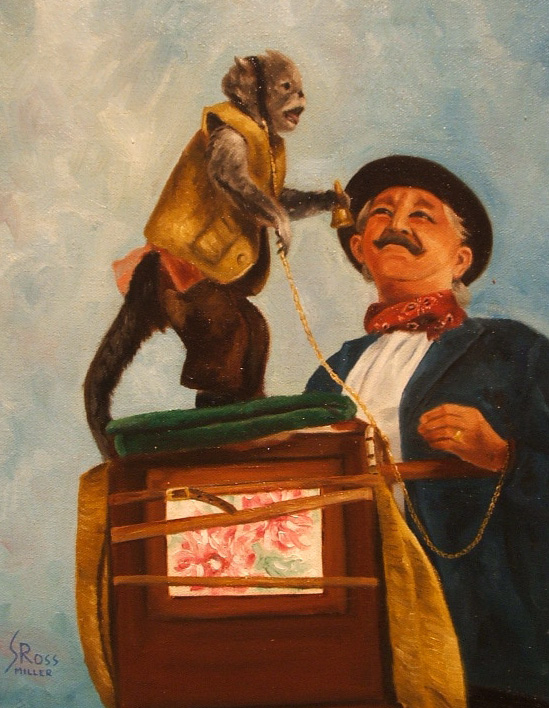Just finished another “HD Radio” interview with Bryan Hyde out in Utah. I’m trying to figure out how to post the audio. Also, I’m going to be on the Financial Survival Network on Weds. at 2 p.m. east coast time. If you miss the live show, I’ll hopefully have that up here soon as well.
Update!
By now, many of you have seen the new ad for the National Motorists Association. I encourage you all to check NMA out if you haven’t already done so. NMA has put a lot of sweat toward keeping Cloverism at bay – and even beating it back. It was NMA, more than any other single group or individual, that got the ridiculous 55 MPH National Maximum Speed Limit (NMSL) repealed… finally… after 20 years of highway torture (and ticket-issuing).
That’s real progress.
NMA has also done a lot to fight the spread of red light cameras and photo radar. They’re good people, suffice to say.
Same goes for our other advertisers – V1 radar detectors, Austin Coins, Amsoil (Vic Sorlie) and Auto Anything. By patronizing them, you also help support Epautos. A two-fer!
Thanks also to everyone who’s chipped in so far this month. I’d really like – hope – to get things to where I can offer T Shirts again, as well as maybe give out free coffee mugs as a step up (or in addition to) the “Don’t Be a Clover” stickers.
Personal aside: As some of you know, I’ve been dealing with a very difficult private problem; if I seem a little off for awhile, this is why. Please bear with. I’m trying to keep the ship afloat and hoping it’ll all turn out ok. To those of you who’ve passed along kind words of support and encouragement, a big thanks is due. Though I’ve not met most of you in person, I consider many of you my friends. I hope we can have a beer one of these days.
-E
If you value independent media, please support independent media. We depend on you to keep the wheels turning!
Our donate button is here.
If you prefer to avoid PayPal, our mailing address is:
EPautos
721 Hummingbird Lane SE
Copper Hill, VA 24079
PS: EPautos stickers are free to those who sign up for a $5 or more monthly recurring donation to support EPautos, or for a one-time donation of $10 or more. (Please be sure to tell us you want a sticker – and also, provide an address, so we know where to mail the thing!)











Good info from our friends a NMA:
http://blog.motorists.org/the-red-light-camera-miracle/
[Transcript. Part 2 of 2.]
Bryan: If you’re just joining us, we’re talking with Eric Peters from ericpetersautos.com, and we’re discussing a new trend that is taking off in Topeka, Kansas called “Hands Compliance.” If you would like to join the conversation, call: 844-805-TALK. That’s 844-805-8255. I know not everybody agrees with what we’re talking about here, so weigh in and let’s hear your side of it.
Join us in talking about the latest little shift that I don’t know if anybody is noticing. The police state always comes on cats’ feet. It’s never one big jolting movement, that’ll arouse everybody and cause them to go: “that doesn’t seem right!”
It’s always little seemingly reasonable things like hand compliance starting in Topeka, Kansas. I want to ask you, in your opinion where did this shift begin? I’ve been watching for the last twenty years and I very clearly can say I’ve seen the shift taking place along that time, it has to go back further though.
Eric: Well it does. I think it really got hot and heavy after nine eleven and the hysteria surrounding that. But I’d go back even farther. I’d go back. I can recollect the Reagan years, and I think it was at that point that the cult of the soldier, or the worship of the flag, meaning the state. The deference to authority. The idea that people with guns and badges are heroes. I remember when that verbiage started to happen. So I think it dates back to the early 1980’s. And it’s just accelerated ever since then, and of course nine eleven poured gas on the fire.
Bryan: Do I dare ask, where can it go from here? If we’re talking about people being pulled over for the most mundane reason whatsoever. Your license plate light is not working. Still, you’re expected to assume the surrender position and freeze in place for officer safety. Where can they take it from here?
Eric: They can take it to a very dark place. This is what comes when the presumption of innocence has been rejected, which is one of the philosophical things that’s got us to the point that we are now. The presumption that people are not violent and should not be treated as if they were violent felons. Now the presumption whenever you deal with one of these people is that you’re guilty of something and it’s your obligation to prove that you’re not guilty of something to their satisfaction before they can let you go.
I remember growing up in a country where you had this good feeling that – unless you did something and there was good reason to believe you had done something – that you could walk down the street head held high knowing that nobody could bother you. That it was against the law for anybody, including a cop, to harass or bother you if you had not given them some clear, definable, objective reason to suspect that you’d either committed a crime or were on the verge of committing a crime. And that’s all been, as I say on my website, thrown in the woods, unfortunately.
Bryan: So let’s talk about the moral idea that is at stake here. How would you articulate what is really at stake here. When we stand up and say “this doesn’t pass muster!” what are we trying to get people to consider?
Eric: We’re trying to get people to consider something that goes back to King John and Magna Carta. This idea that you are as an individual innocent until you’ve been proved guilty. Or at least there is very compelling evidence to suspect you’re guilty of having committed a crime. And crime to me, properly speaking, means something that involves a real tangible harm to an innocent victim; to another person. That’s what’s been up-ended and it was up-ended incrementally.
It goes back again to the 1980s when the sobriety checkpoints were approved by the Supreme Court. And you get into difficulty here because people will immediately say: “Oh, well then you must support drunk driving.” Absolutely not. It’s the farthest thing from what I support. However, I do not support treating all drivers on the road at random as presumptive drunks and forcing them to prove that they are not drunks. And in addition to that, subjecting them in their vehicles to a probable-cause free inspection by a cop. Once that was approved by the court, other things began to fall into place, and that’s how we got where we are today with checkpoints at football games. Frisks before you can get onto an airplane. All of these implicitly take the view – philosophically and legally – that everybody’s guilty of something, unless they prove that they’re not. That is that is the kind of mentality that undergirds totalitarian societies, authoritarian societies, not free societies.
Bryan: So I do my thing. Giving up is not an option, and I don’t think you take that tack either. What can we do? Obviously there are some things we can do. What do you recommend people do to help nip this in the bud or at the very least, try and get things steered back in a direction where we are presumed innocent?
Eric: Well I think it’s important that we all talk about it for one thing. Around the dinner table, among our friends, among our colleagues, so that we know that we’re not alone. I think a lot of people are uneasy about what’s happening and perhaps feel alone because they think that most people don’t agree with them. I find that’s not the case. I find more and more, that people that I speak with are also uncomfortable with this to varying degrees and that gives you the opportunity to bring in the philosophical point.
To talk about some of the things that this country was once based on, and once lived by, but which no longer does. I think it’s all a very reasonable and logical thing to present. You can point out for example that people used to watch movies and laugh about: “Your Papers Please!” And seeing the Stasi, and the Nazis, and the Soviets randomly frisking people and having checkpoints. Our parents’ generation looked at that, my generation looked at that and thought: “You know that’s what happens in Russia, what happens in Nazi Germany, that could never happen in the United States!”
Well it’s happening in the United States, and it’s high time we put a stop to it and recovered our senses. If we want to live in a country like America and not a country like the Soviet Union.
Bran: I know this is this is a deep topic to broach, but I’m going to ask your opinion on this. Part and parcel of this concern for officer safety that would have people immediately presumed to be perpetrators. Is also feeding the militarization of our local police forces. I can’t think of even small towns that don’t have some kind of former military-armored vehicle at their disposal. What are your thoughts on militarization?
Eric: I was thinking, I can intimately and personally relate to that. I live in an extremely rural area. One stop light in an entire county, very rural, southwestern Virginia county. They’ve gotten the homeland security grants, and they have one of those, I think they’re called MRAPs. One of those vehicles that they used over in Iraq to battle the insurgents. As if we have insurgents here in Floyd County. You know they’ve got the heavily armed SWAT teams, with the full-auto rifles. And the high capacity semi-auto side arms. They look literally exactly like special forces teams that use exactly the same equipment and they have exactly the same attitude. And they’re deploying increasingly the same tactics these no-knock overwhelming-force raids where they kick in somebody’s door. Even a person who’s not an imminent threat to anybody. To serve a warrant. To search for illegal contraband, et cetera, and if it’s happening here in my little County in southwest Virginia. You can be sure it’s happening all over the country.
Bryan: At the end. This is the thing. I think for the most part we see the armored vehicles at least here in southern Utah primarily in parades. They make a great parade vehicle. But the bottom line is, they’re still there. And as long as they’re there, I can’t help but think that the excuse to want to use them, and justify the ownership of them of course is going to come up at some point.
Eric: Of course, and also to psychologically normalize it. To make people used to seeing that kind of thing. Until quite recently, if you went back twenty years. If you saw a military hardware in the streets, most people would be a little bit taken aback by that. A little bit concerned about that. Now because it’s become so ubiquitous, people don’t really bat an eye at it. And that’s troubling. Again, it’s part of this institutionalization of a military mindset of overwhelming force of state power flexing its muscles all the time. So the people, particularly the younger people who can’t remember the way things used to be, think of it as entirely normal and reasonable.
Bryan: So just curious, I’m sure you hear from people within law enforcement. Given that this is one of the topics you visit quite regularly on your blog. What kind of feedback do you get? Do you ever get feedback from officers who say: “Eric you’re right, but it’s kind of dangerous for me to talk about this among my brothers in uniform?
Eric: Often, and invariably they are older cops. Guys in their 40’s and 50’s who became cops before all of this stuff came to pass. And who themselves are troubled by what’s come to pass. A lot of them left and took early retirement, because they didn’t like what they were being asked to do. Didn’t like the environment, and really couldn’t mesh well with the new crop of cop. A lot of these cops are military. Most local law enforcement has been actively recruiting former troops. People who’ve done tours of duty in Iraq and Afghanistan, which I think is a profoundly wrong move.
Minimally, if I were given the power to institute a reform, one reform would be that military service – in particular service in a combat zone – would be an automatic disqualification for work as a civilian law enforcement officer.
Bryan: We’re down to just about a minute before we’ve got to break away. I know that you stay on top of this, and other subjects, so let’s tell everybody a little bit about your Web site. I want people to go there. I want them to consider what you have to say. What can you tell us about ericpetersautos.com?
Eric: It’s kind of an eclectic clearinghouse of information. We have new car reviews. We have a retrospectives on classic cars. We have things about motorcycles. New motorcycles, old motorcycles. And kind of weaving through all of that are the political issues that we’ve been talking about on the show, that I think bear directly on all of those things.
Ultimately driving and mobility have to do with freedom. And what made America great was being able to jump in your car, that you bought, that you wanted, that you had ordered exactly the way you wanted it. And go for a drive without asking permission, and without being monitored. And just to have a good time. And that’s why I use that – if you will – “vehicle” – to present some of these libertarian ideas that I’m trying to get across to a wider audience.
Bryan: All right! Eric Peters, thank you so much for giving us your time today. Let’s talk again soon.
Eric: Appreciate it, Bryan!
Outro and Music: This is the H.D. Radio Show.
[Transcript. Part 2 of 2.]
The big problem with “Religious Freedom Restoration Act(s)” like the most recent one in Indiana, is that they are too restrictive. They allow certain acts of discrimination ONLY if based on deeply held religious beliefs.
If I own property, e.g., a restaurant, I should have the right to refuse service to any one for any reason. The legitimate goal of the Civil Rights movement was to rid the country of Jim Crow, which was the LEGAL prohibition of integration at either the State or local level of gunvermin. But we ended up with the Civil Rights Act of 1964, which outlawed ALL discrimination, private as well as public. Well guess what – discrimination is a fact of life. Tim Cook, the CEO of Apple, is in an uproar against Indiana allowing discrimination against him because he is a homosexual. But he has discriminated against every woman on the planet because he rejects them out of hand. I have discriminated against all men, and every woman except my wife, by selecting her as my exclusive mate.
It is gunvermin imposed discrimination, just like anything else gunvermin imposed, that is the problem.
[Transcript. Part 1 of 2.]
Intro and Music: Your daily vaccination against an epidemic of fear and irrationality. This is the H.D. radio show with Bryan Hyde.
Bryan: Good afternoon and welcome to the H.D. radio show. We’re off and running on this Monday. I have Eric Pieters from ericpetersautos.com on the telephone with me. Eric, welcome back to the show.
Eric: Thanks for having me again Bryan, I appreciate it.
Bryan: Glad to have you here tonight. I will admit I have been a little bit obsessive over about the last twenty years. I have been watching a gradual shift in how law enforcement interacts with the public; and you know I feel like twenty years is a pretty good time period to get a feel for even the subtle changes that have been coming along. I still run into a lot of skeptics who say all of this is the way policing has always been, or it’s never been better, and I’m not buying it. So when I saw your article last week about “Hands Compliance” I thought, I got to get Eric on the show to talk about this, because I know you’ve obviously been keeping track for a while too.
Eric: I have. Not only professionally but also personally Like you, I can remember the America that was and the way things were with regard to how police interacted with the public as recently as twenty or so years ago. And it’s profoundly changed. I think most reasonable people will agree that the dynamic has changed remarkably over the past couple of decades.
Bryan: OK. So let’s let’s talk about this newest development and just see if anybody perceives any kind of noticeable shift that creates more distance between the government and the people.
Eric: Well this business in Kansas it’s kind of the logical, inevitable logical result of the general trend. What they have decided to do is require that motorists who are pulled over for any reason, including trivial things for example: out of date state inspection stickers or something along those lines. They will be required to freeze in place, and place their hands on the wheel. And anyone who fails to do that will be perceived – as the saying goes – a threat to officer safety.
And the really profound danger there of course, is that once you’re perceived as a threat to Officer safety, it’s effectively become open season on that person. And even if that person is an innocent old lady who’s fumbling through her purse or a befuddled older guy or somebody who’s got a rotator cuff injury and they have a tough time putting their hands up in the air and putting them on the steering wheel. You’re presumptively to be treated as a felony stop. Over trivial traffic offenses.
Bryan: OK. I just want to make this clear, because I don’t want people to say: “well, you guys are sensationalizing this. This doesn’t necessarily mean that the people are being held at gunpoint. It just means that they’re going to be instructed to get their hands up in the surrender pose until they’re told to do otherwise.
Eric: Sure, and the fact of the matter is, any time that you deal with a cop in a situation like that, you are being held at gunpoint. Maybe perhaps not literally, but that implied threat is always there. And in an increasing number of cases, they will have their hand on their gun and, not uncommonly, sometimes they will actually draw the gun. And I’ve had that done to me over a speeding charge and it’s really pretty scary if you’re you know if you’re just an ordinary law-abiding middle-class kind of person and you’ve never done anything criminal. To be looking down the barrel of a Glock over a traffic ticket.
Bryan: Yeah, it does seem a tad excessive. Can I use that word?
Eric: I think that’s putting it mildly. I think if you want to get at the genesis of this stuff. Part of it is due to the seepage of what you might call the military mindset into civilian peacework that’s occurred over the past twenty years. And certainly since nine eleven. Soldiers are trained to regard anybody who is not a fellow soldier as an enemy; a hostile. The verbiage is very similar; or a threat to their safety. And that’s that’s profoundly at odds with the way civilian police ought to regard citizens who are their fellow citizens that they work for. Not as threats, but as fellow Americans, and that’s what’s been eroded significantly over the last twenty years.
Bryan: So where did this idea in Topeka Kansas come from. I have no doubt it’s going to catch on elsewhere. But was there an incident? Did a police officer telling somebody that their tail light was out you, encounter a deadly situation, or what?
Eric: There have been some shootings. My understanding is that over the past decade or so, there have been three killings of police in Kansas. The problem is, that it is a completely hysterical and exaggerated perception of the threat to them. Versus to us. To give you some perspective if you look at the statistics about how many people are are shot by police in the United States every year it’s approximately a thousand people. Depending on whose numbers you look at. The number of police who’ve been shot over the last year was one hundred fourteen. So it’s something like a ten to one ratio.
On the other end of the thing, we are much more at risk from cops, than they are from us. They have become literally hysterical about their safety to the extent that the most mild act of non-compliance. Even if it’s simply refusing to answer the question, now is considered a threat to their safety. They want you to literally become supine. And you know to obey any barked order no matter how unreasonable. And any show of recalcitrance is considered a threat to their safety.
Bryan: Amazing. I know the Salt Lake Tribune was reporting that just a few months ago here in Utah. The second leading cause of homicide in the state was death by police officer. In other words, you’re more likely to be shot by a police officer presumably over concern for officer safety, than you were to be shot by a gangster.
Eric: Absolutely. And there are two factors in my opinion that are driving this. First, is the military mindset and the idea that we’re all threats that we’ve been discussing. The second is that police are, and this is rather ironic in my opinion, held to a far more lenient and lesser standard with regard to using force including lethal force than you or I are. If you or I, for example, were to brandish a handgun merely to present it in a threatening manner. We’d almost certainly be charged with a felony, absent some extremely strong evidence that we were actually threatened. And we’re brandishing that the weapon to ward off an imminent attack.
On the other hand, a cop merely has to assert that he felt that his safety was threatened, not that his safety was actually threatened, but that he felt that it was. And then he can shoot you without even remotely the same fear of criminal prosecution that you or I would face. And also, this is a very important point, civil suits. You and I, if we shoot somebody, even if we are exonerated criminally, even if it turns out that we had legitimate reasons for fearing for our safety. We were about to be attacked so we used a gun to protect ourselves.
That person’s family can sue us personally and will probably destroy us financially. Whereas, in a police shooting, even if the shooting is egregious. If there is a settlement, almost always it will be the taxpayers of the county or the state that wind up footing the bill and not the cop personally. So you can imagine the perverse incentives that are operating here. You know cops are essentially given a kind of immunity, literally it’s called qualified immunity, to behave recklessly, criminally, feloniously, and naturally we get more criminal reckless felonious behavior from them.
Bryan: OK. So I I have to ask this: “To serve and protect.” I still see this on a lot of police vehicles. I just want to follow it up with the question: Whom? Is it to serve and protect the people. Is it to serve and protect the state?
Eric: Well increasingly, it is the state. There’s a joke you know, that it turns that around a little bit and says: “To harass and collect.” They spend a great deal of their time issuing fines to people and enforcing victimless crime laws that generate revenue for the system. To a very great extent, they’ve become a kind of Praetorian guard for the state; for the government. And most people understand this at a gut intuitive level.
They don’t feel safe when a cop car is riding their tail going down the road. They don’t feel safe when they have to encounter one in public at a checkpoint. Do you feel safe when you go through a checkpoint, even though you know you’ve done nothing, you’re dealing with this guy who’s got the authority of the state. He’s got a gun. He’s got a bunch of other guys with him with guns. and you know that they can pretty much do more or less whatever they want to without a whole lot of repercussion and you’re powerless to defend yourself against them.
[Transcript. Part 1 of 2.]
Raw Transcript of Bryan Hyde HD Radio Show April 6 interview is here.
We are Torcutus of Torg
Thanks, Tor!
More from Bryan Hyde…
Perspectives: Pizza, bigotry, competing rights
Written by Bryan Hyde on April 6, 2015 in St George Utah News; Columnists, Opinion – 32 Comments
OPINION – There is a silver lining to the cloud of controversy that has arisen over various laws seeking to protect religious freedoms. The deception that’s been foisted on us is finally becoming clear.
What was represented as a quest for inclusion and equality as little as 15 years ago has become an official pogrom to punish the unwilling.
https://www.stgeorgeutah.com/news/archive/2015/04/06/perspectives-pizza-bigotry-competing-rights/
Persuasion and voluntary cooperation are how we authentically bridge the gaps between people. Coercion is the tool of frustrated petty tyrants.
Just remember that even genuine bigots have property rights and freedom of association that neither we nor the state can rightly violate. Also, anything that rises fast tends to fall fast.
That’s the nature of fads.
Bryan Hyde is a news commentator and opinion writer in Southern Utah. The opinions stated in this article are his and not representative of St. George News.
Utah gets tougher seat belt law with governor’s signature
https://www.stgeorgeutah.com/news/archive/2015/03/24/mgk-stricter-seat-belt-law-signed-by-governor
One such bill was the 2013 Senate Bill 114. It sought to make wearing a seat belt on Utah’s highways a primary offense, yet ultimately died in session that year. Bryan Hyde, a radio talk show host and a columnist for St. George News, wrote about SB 114 and his general objection to seat belt laws:
It invites the state into our lives for reasons that have nothing to do with protecting our rights or promoting justice
The problem with seat belt laws is that they are a gross misuse of state power making a seat belt violation into a primary offense sidetracks police officers from actual crimes involving real, not imaginary, injured parties. It invites the state into our lives for reasons that have nothing to do with protecting our rights or promoting justice. Given the increasingly intrusive nature of the state, the less contact we have with members of its extractive branch, the better off we are.
Bundy Ranch vs. BLM. The Fat Lady Hasn’t Sung
http://www.thetruthaboutguns.com/author/bryan-hyde/